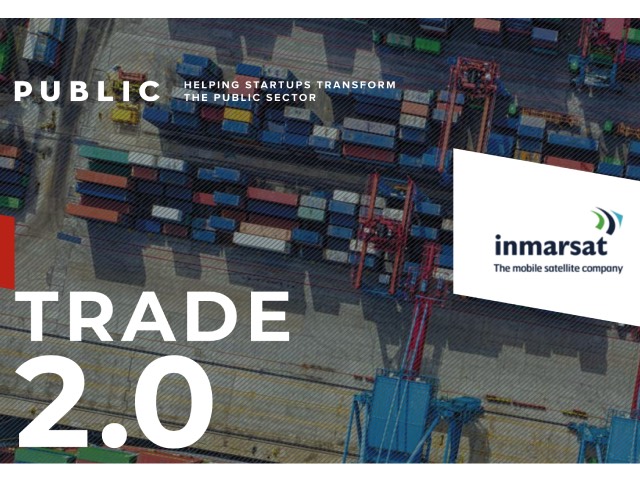A new study explores the commitments to Internet of Things (IoT) based ship and crew management made by corporate Japan and offers unique insights into the country’s emerging start-up culture.
The Inmarsat-sponsored report, ‘A quiet revolution – the maritime innovation ecosystem in Japan’*, is the first in a series of in-depth profiles into maritime technology and start-ups in specific countries. It builds on ‘Trade 2.0: How start-ups are driving the next generation of maritime trade’, a global study launched by Inmarsat during London International Shipping Week 2019.
Both studies are the work of renowned maritime experts Nick Chubb (Member of the Nautical Institute – MNI) and Leonardo Zangrando (MSc, MBA). Nick Chubb is a former seafarer and founder and director of Thetius Maritime Innovation Intelligence. Naval architect Leonardo Zangrando is founder and managing director of Startup Wharf Ltd, a global virtual hub promoting start-up-driven maritime transformation.
Perceptive insight
“We are delighted to be the key sponsor of this latest report,” said Ronald Spithout, President of Inmarsat Maritime. “It offers a perceptive insight into the status of Japan’s growing maritime digitalisation in 2020.”
K Line has worked with Kawasaki Heavy Industries developing a ship performance optimisation platform to manage biofouling, optimise trim and to reduce crew workload. MOL joined the National Maritime Research Institute and Furuno Electric Co. to develop augmented reality for navigation support for 21 very large crude carriers (VLCC), while NYK has developed its onboard IoT platform with Monohakobi Technology Institute (MTI), Nippon Telegraph and Telephone and NTT Data.
Important relationships
“Partnerships have been the bedrock for digitalisation in Japan,” commented Spithout. “As the leading provider of high-speed maritime broadband connectivity via Fleet Xpress, we work closely with the large corporate enterprises pushing the technological envelope. However, this new report highlights other important relationships that are also shaping Japan’s digital future, including those outside of conventional networks such as the E5 Lab on autonomous vessels, Ship Data Center and the Maritime Innovation Japan Corporation.”
Earlier this year, Inmarsat began working with Ship Data Center (ShipDC), set up by the classification society, ClassNK. ShipDC promotes the initiative Internet of Ships Open Platform (IoS-OP) to integrate operational data from multiple fleets. Container carrier Ocean Network Express (ONE) uses the IoS-OP to share data with K Line, MOL and NYK respectively across the ONE container fleet, improving fleet performance benchmarking. Finnish data analysis specialist NAPA became the first solution provider to join the IoS-OP, offering ship and voyage optimisation services. NAPA is also a Certified Application Provider for the Fleet Xpress IoT platform for shipping, Fleet Data.
“Now is an ideal moment for a report exploring the way Japanese maritime stakeholders are engaging in new partnerships, including with start-ups outside Japan,” said Spithout, citing NYK Line’s project with Transnational Diversified Group Maritime and start-up MarcoPay to enable electronic seafarer salary payments direct to phones; work by start-up Sensetime with MOL on image-based collision avoidance; and the creation of Symphony Creative Solutions by NYK Group, Weathernews and Kozo Keikaku Engineering to help Singaporean start-ups engage with Japanese maritime interests.
Rising interest
“We have also seen the Japanese government attempting to grow the local start-up ecosystem through its J-Startup programmes, resulting in rising interest from local and international venture investors.
“Japan’s maritime technology sector is worth $8.8 billion today and is projected as growing to $15.8billion in value by 2030 [Startup Wharf proprietary methodology]. Clearly, with innovation remaining the priority, Fleet Xpress connectivity, Fleet Connect and the Fleet Data IoT platform will be key enablers for corporates, their partners and start-ups alike.”
* ‘A quiet revolution – the maritime innovation ecosystem in Japan’ can be downloaded from the following links: English version, Japanese version.






































